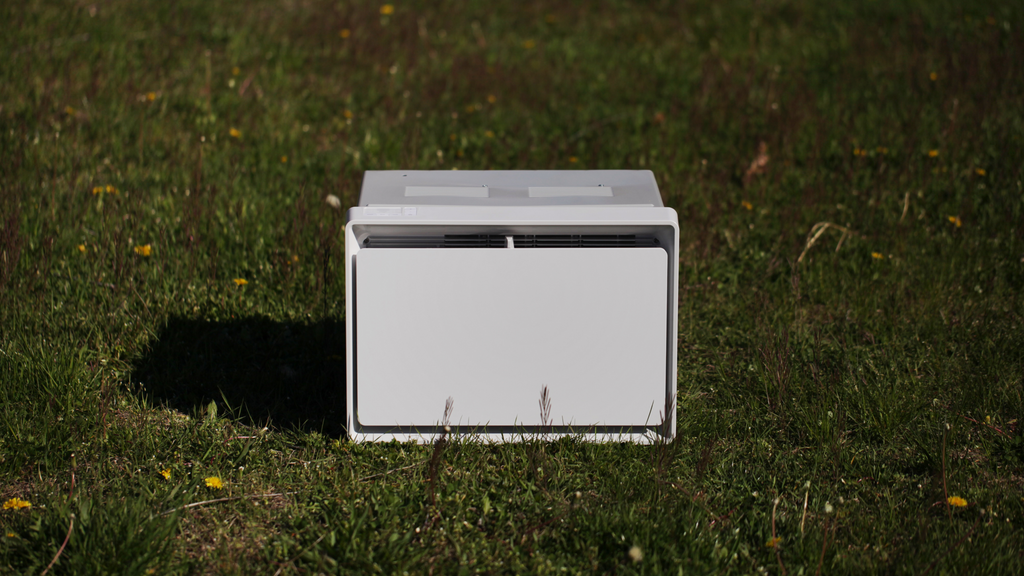The future of air conditioning will have a profound impact on our planet and global warming. Cooling accounts for a huge proportion of energy usage - and, by extension, harmful greenhouse gases that contribute to the warming of our planet.
The sad irony: the hotter the planet gets, the more we will need A/C - and the more A/C we use, the warmer the planet gets.
Our goal at July is to be a part of the solution, not the problem, by building a business and product that continually reduces its environmental impact. We’re starting with an environmentally-friendly refrigerant and a carbon offset program that mitigates the usage of every A/C we sell. But that is just the start.
There is no doubt that air conditioning is one of the most impactful innovations in human history, allowing us to work and relax comfortably in conditions that were historically unbearable. Until the 20th century, Americans dealt with heat waves as many around the world still do: they fanned themselves, took it easy, and sweated it out.
It wasn't until 1902 the first electrical air conditioner was invented by Willis Carrier, a 25 year-old engineer, who was tasked with reducing humidity in a printing house in Brooklyn (the magazine pages were wrinkling in the Northeast summer humidity that many of us know too well) . Through a variety of experiments, Carrier created the first system that could control humidity and temperature using a series of cooling coils - it was a truly revolutionary breakthrough.
At first, this was primarily used in manufacturing, but quickly became adopted by others who saw its capacity to produce relief from the hot summer heat. Needless to say, this early technology was not perfect. In many theatres that had adopted the technology in those early days, patrons who sat near these A/C units built in the floors were forced to wrap themselves with newspapers to stay warm. From too hot to too cold.
It was not until the 1950s and 1960s that this cooling technology became widely available and affordable in American homes. But by the late 1970s, the majority of new homes were being built with a central air conditioning system, rapidly fueling population growth in states like Florida and Arizona that were otherwise uncomfortably warm or humid for large parts of the year.
Today it is estimated that ~90% of homes in the U.S. have some sort of air conditioning system. Many of us would not be able to imagine a world without A/C now.
While air conditioning has improved the quality of life across the world, its popularity has proved detrimental to our planet. Initially, air conditioning technology used chlorofluorocarbons (CFCs) which contributed to ozone depletion. The Montreal Protocol helped shift the industry away from these CFCs to HFCs which has eliminated this negative impact from cooling on the ozone. However, the amount of electricity required to run an A/C still has a massive impact on global warming. It is estimated that ~20% of all energy consumption in the United states goes towards cooling.
In turn, air conditioning has created a cycle that we must break and break quickly.
Today it is estimated that there are 1.2 billion room air conditioners around the world. By 2050 (if not sooner) that number is expected to grow to 4.5 billion. This explosive growth is driven by a warming planet along with rising incomes across the world.
Cooling is and will continue to become a basic human right that we can’t ignore. About 30% of the world’s population is currently exposed to dangerous heat conditions, and with a warming planet that number will jump to nearly 75% by 2100 according to current statistical models.
Affordable and accessible cooling will become a necessity for human health in addition a tool that allows for increased productivity and economic development - as it has done in the United States.
However, if these 3.3 billion air conditioners are added to the world using the same technology that currently exists; the results will be incredibly damaging.
At July, we are committed to investing in and leading the way in this quest to find both accessible and cost effective cooling systems. We believe that the current leaders in the space have not done enough to drive innovation - focusing more on consolidating market share and profits than innovating for the future.
We are excited that we are able to launch our first line of Julys with an energy-efficient refrigerant called R32, which has 2/3rds less harmful emissions than most units on the market today. In addition, this technology uses 10% less energy, reducing customers’ monthly spend on energy bills. We are incredibly excited that we can create this impact from day one and will continue to invest in and create new technologies that reduce the impact of cooling on our environment.
In addition to implementing this technology, we as a company are trying to do our part in mitigating the impact of cooling on our planet. July will be offsetting the emissions of every A/C we sell with a partnership with Carbonfund.org and dispose of customers’ old A/Cs in an ecologically-friendly way, avoiding refrigerant leakage that is harmful to the planet. We are and will continue to invest in technologies that create a more sustainable future of cooling.
But this is just where we start. We are going to spend our time and money investing in and researching the cooling solutions for the world of tomorrow. Because we know that people will need to find a way to keep cool - for their health, their productivity, and their relaxation. But we cannot allow that to come at the expense of our planet’s health. We want to be at the forefront of that push towards more environmentally-friendly cooling, so watch this space.







